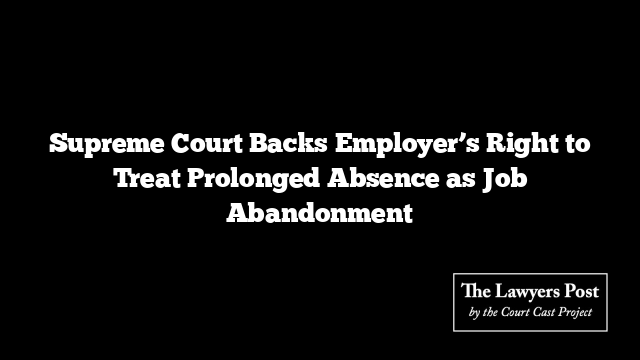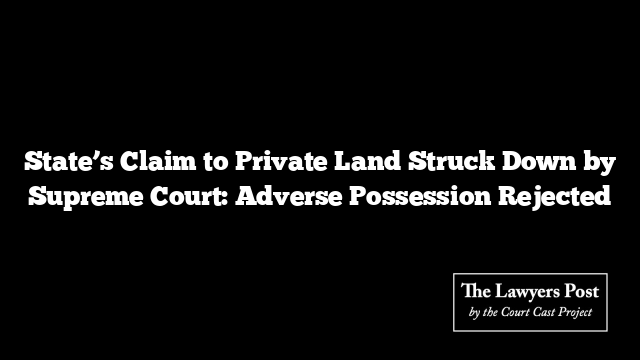In a pivotal judgment, the Supreme Court upheld the dismissal of a Life Insurance Corporation (LIC) employee who disappeared from duty without notice, deeming the absence tantamount to abandonment of service.
The decision overturned a High Court order that had directed the reinstatement of the employee, who had been terminated under LIC Staff Regulation 39(4)(iii) for failing to communicate his whereabouts despite multiple notices.
The employee, serving as an Assistant Administrative Officer, stopped attending work on September 25, 1995, without providing any explanation. LIC issued notices in October, November, and December of that year, urging him to return, but received no response. Investigations later revealed that he had secured employment with the Food Corporation of India (FCI), a fact he concealed from his former employer.
The Supreme Court emphasized that LIC had acted within its rights by terminating the employee after reasonable attempts to establish communication failed. Justice Hrishikesh Roy, writing the judgment, noted that suppressing information about alternate employment disqualified the employee from receiving equitable relief.
“Such conduct of the respondent could not have been condoned by the employer,” the bench observed. The Court also clarified that the High Court erred in granting relief without considering the employee’s misconduct and prolonged silence.
The ruling highlights an employer’s prerogative to treat extended, unexplained absences as abandonment of service when reasonable efforts to contact the employee are ignored. By quashing the High Court’s order, the Supreme Court reaffirmed the validity of actions taken under LIC’s staff regulations.
The appeal was allowed, with both parties bearing their own legal costs.





